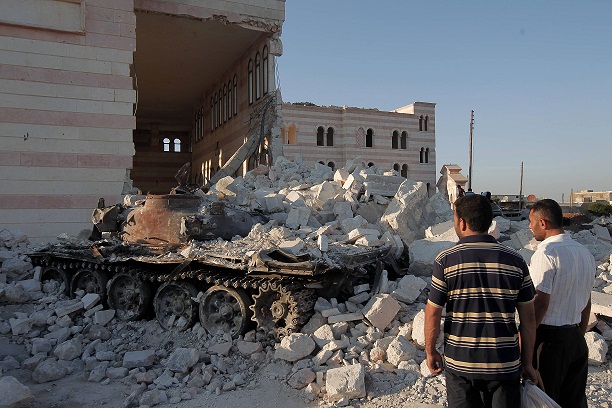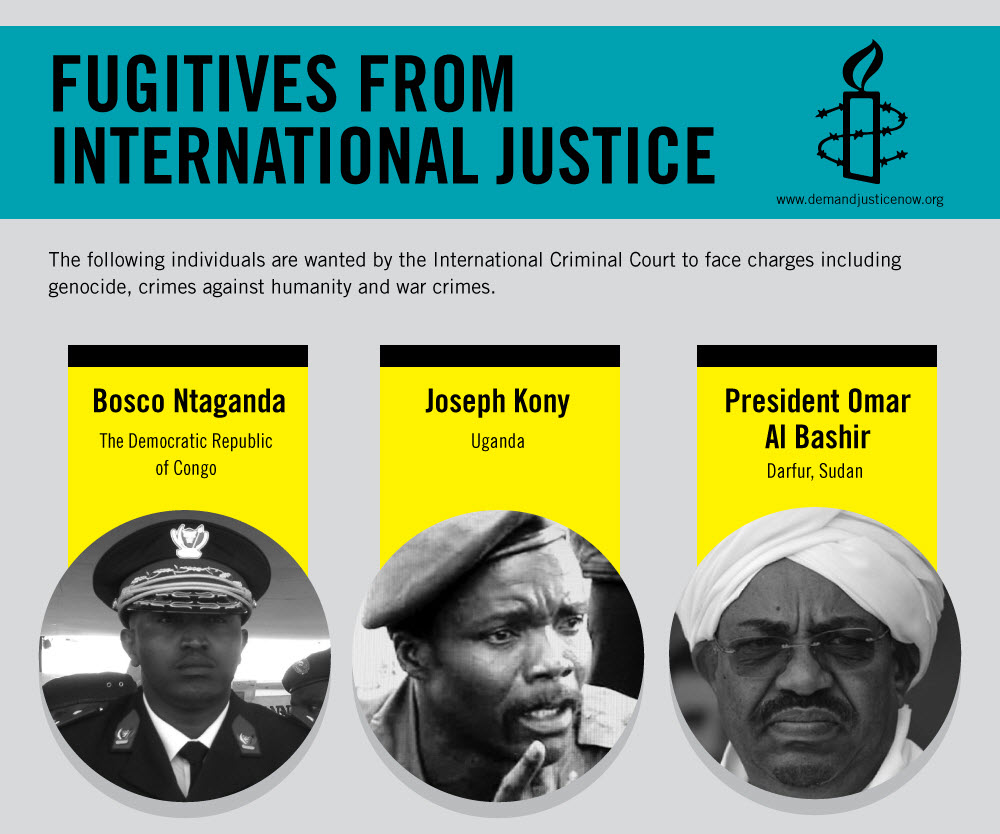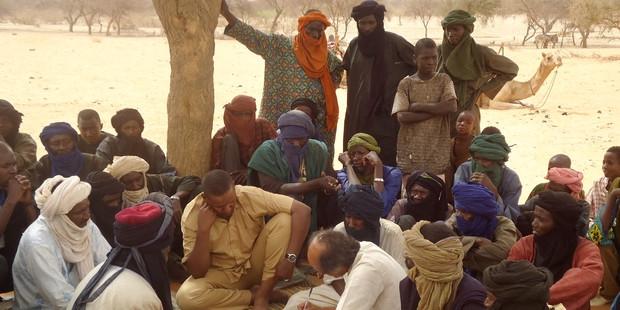
Syrian men look at a destroyed Syrian army tank parked outside the Azaz mosque, north of the restive city of Aleppo, on August 2, 2012. (c) AHMAD GHARABLI/AFP/GettyImages
News reports coming out of Aleppo paint a grim picture of the confrontation between opposition fighters and the Syrian armed forces, who are describing this as the “decisive battle”. If the past 16 months are any indication, we have to brace ourselves for a new wave of human rights violations, as well as grave breaches of international humanitarian law. As has been extensively documented by Amnesty International and others, the atrocities committed in Syria have steadily continued to climb.
For example, one of my colleagues who recently returned from Aleppo, documented crimes we believe amount to crimes against humanity. Her reporting from late May describes how government security forces and the notorious government-backed shabiha militias routinely used live fire against peaceful demonstrations in Aleppo, killing and injuring protesters and bystanders, including children, and hunting down the wounded, the medics who treated them, and opposition activists. SEE THE REST OF THIS POST






